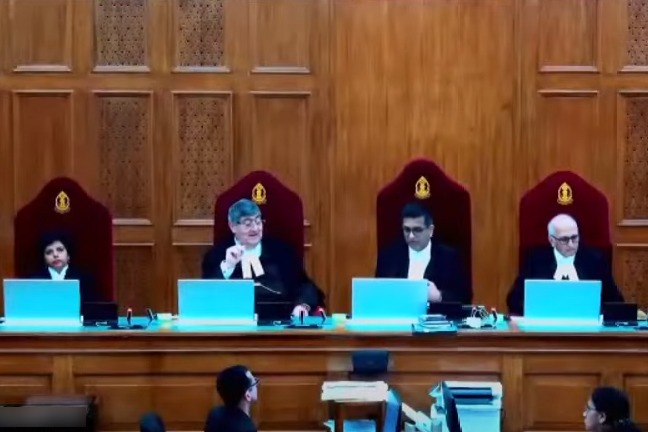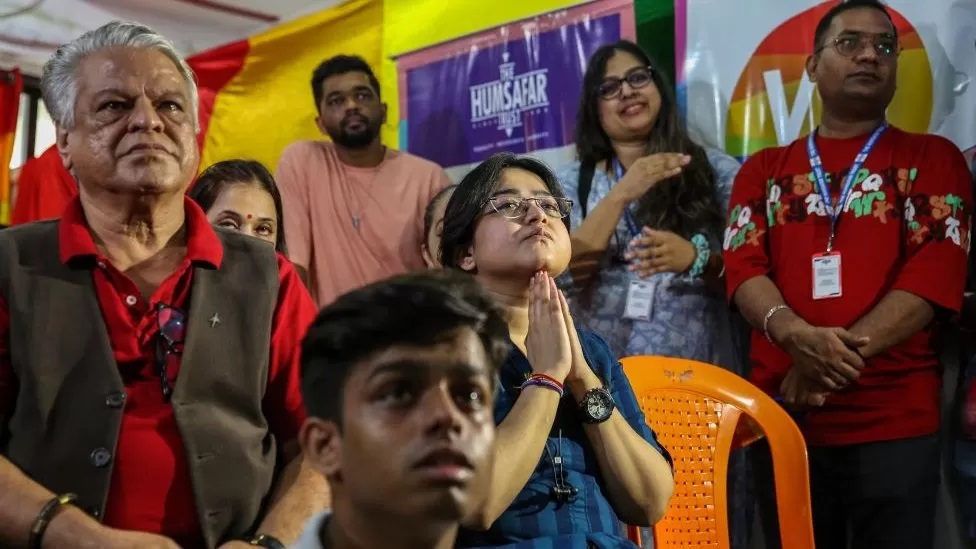India Supreme Court declines appeal to legalize same-sex marriage

India’s Supreme Court has rejected the legalization of same-sex marriages, disappointing millions of LGBTQ+ individuals seeking marriage equality.
Instead, the court has agreed to a government proposal to establish a committee to consider granting more legal rights and benefits to same-sex couples.
Activists and same-sex couples expressed their disappointment and pledged to continue their advocacy efforts.
The court was reviewing 21 petitions filed by same-sex couples and activists.
These petitioners argued that the inability to marry infringed upon their constitutional rights and relegated them to second-class citizenship.
They suggested amending the Special Marriage Act to include same-sex unions by replacing “man” and “woman” with “spouse.”
The government and religious leaders vehemently opposed these petitions, contending that only parliament could address the issue of same-sex marriage and warning that legalizing it would lead to societal chaos.
Ultimately, the judges concurred with the government’s stance, stating that only parliament had the authority to make laws, and the court’s role was to interpret them.
Solicitor General Tushar Mehta’s proposal to form a committee to consider granting rights and privileges to queer couples received acceptance.
Two of the judges advocated for civil unions and equal benefits for same-sex couples, but the majority did not support these recommendations.
Chief Justice DY Chandrachud also provided a list of directions to the government to combat discrimination and protect the queer community but did not receive majority support.
Initially, there was hope that India was on the verge of legalizing same-sex marriages, with the court indicating a willingness to amend the Special Marriage Act.

However, as the hearings progressed, the complexity of the issue became evident, with numerous legal matters intersecting with religious personal laws.
This ruling disappointed activists and same-sex couples who had anticipated a different outcome.
Some felt that the decision left them in bureaucratic uncertainty with no clear timeline for obtaining rights.
On the other hand, some welcomed the court’s decision, asserting that only the Indian parliament had the authority to legalize same-sex unions.
The LGBTQ+ community in India, estimated to be in the tens of millions, had been closely following this case.
Attitudes towards sex and sexuality in India remain conservative, and stigma and discrimination persist, making it a significant social issue.
Despite the hopes for societal acceptance, the Supreme Court’s decision did not provide the push that the LGBTQ+ community had anticipated.
Source-BBC





